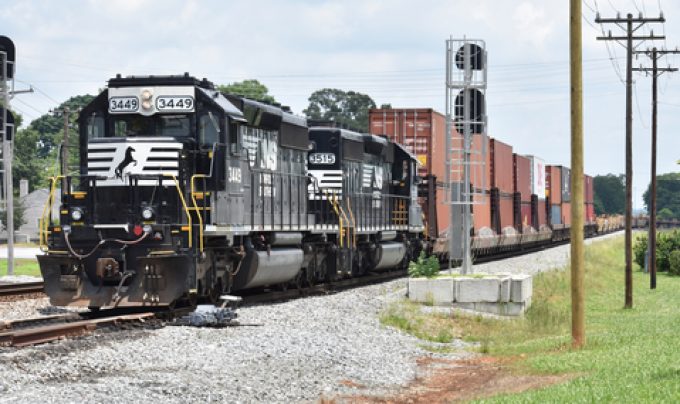SA: Norfolk Southern CEO keeps job, activist Ancora wins three board seats
SEEKING ALPHA reports: Norfolk Southern Corp. (NYSE:NSC) CEO Alan Shaw kept his job and activist Ancora ...

The US rail carriers feel maligned by the federal minister in charge of their industry.
In a letter to transportation secretary Pete Buttigieg, the Association of American Railroads (AAR) has pushed back against comments he made last week ahead of the anniversary of the derailment of a Norfolk Southern (NS) train in East Palestine, which forced the evacuation of local residents because among the derailed rail cars were five carrying vinyl chloride, a highly toxic chemical.
Keep our news independent, by supporting The Loadstar
Volume surge and an early peak season? 'Don't celebrate too soon,' warning
Container spot rates diverge: to Europe still falling, but firmer to the US
Ecommerce likely the front-runner in resurge of transpacific trade after deal
Hapag-Lloyd won't take bookings if port congestion leaves cargo stranded
China-US trade tariff pause could drive a rebound for transpacific rates
Shippers should check out the 'small print' in China-US tariff cuts
Service chaos from trade ban with India a problem for Pakistan shippers
Carriers impose 'emergency operation' surcharges on Pakistan cargo
Airfreight rates ex-China 'loss-making', but hopes of a trade deal stay high
Serious threat to jobs in US logistics as tariffs cause economic 'stagflation'
15% rebate for box ships as Suez Canal Authority woos carriers
White House u-turns see freighters flying but keep logistics players on their toes
MSC in terminal switch as Nhava Sheva gets strong start to new fiscal year
Peak season or recession? Forwarders and shippers need to 'stay flexible'
Volga-Dnepr claims 'pirate' Canada has 'hijacked' its stranded aircraft


Comment on this article